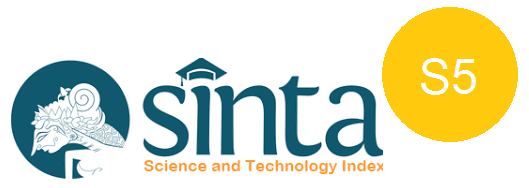A Spelling Lesson Plan Model to Indonesian Young Learners Using Peer-Tutoring Approach
DOI:
https://doi.org/10.47313/pujangga.v7i2.1205Abstract
The article is conceptualized a lesson plan for teaching English spelling to young learners at primary school. The underlying strategy is pairing student and another peer student instead of teacher-student. Previous and present studies have shown that teaching spelling to learners can enhance other language skills, to name a few, i.e., reading and listening. Thus far, little to be found a practical lesson plan provided in the Indonesian context. Having this article is hoped to be a trigger for a new idea to consider student-student activity into the material design and its methods of teaching in the EFL context. The plan will be particularly helpful for the educators who seek perspectives in teaching and researching spelling to young learners.
References
Brown, H. D. (2007). Principles of language learning and teaching (4th ed.). Longman.
Diana, S. (2017). Spelling strategies in the Movie “Akeelah and the Bee.” Indraprasta PGRI University.
Directorate, N. S. W. C. S. (1998). Focus on literacy: Spelling. NSW Dept. of Education and Training, Curriculum Support Directorate.
Flanigan, B. O. (1991). Peer tutoring and second language acquisition in the elementary school. Applied Linguistics, 12(2), 141–158. https://doi.org/10.1093/applin/12.2.141
Hashemi, A., & Ghalkhani, O. (2016). The impact of different teaching strategies on teaching spelling to kindergarten children. Journal of Language Teaching and Research, 7(4), 730–737.
Ismaili, M. (2013). The effectiveness of using movies in the EFL classroom–A study conducted at South East European University. Academic Journal of Interdisciplinary Studies, 2(4), 121.
Jones, A. C., & Rawson, K. A. (2016). Do reading and spelling share a lexicon. Cognitive Psychology, 86, 152–184. https://doi.org/10.1016/j.cogpsych.2016.02.003
Kwong, T. E., & Varnhagen, C. K. (2005). Strategy development and learning to spell new words: generalization of a process. Developmental Psychology, 41(1), 148.
Nassaji, H. (2007). The development of spelling and orthographic knowledge in English as an L2: A longitudinal case study. Canadian Journal of Applied Linguistics/Revue Canadienne de Linguistique Appliquée, 10(1), 77–98.
Pentecost, H., & Dickie, J. (2011). Using metacognition to explore spelling strategies. Set: Research Information for Teachers, 3, 55.
Samosir, M., Rahayu, P., & Donal, A. (2017). Improving students’ vocabulary mastery through spelling bee game at fifth frade of SD swasta Kalampaian Kunto Darussalam. Jurnal Ilmiah Mahasiswa FKIP Prodi Bahasa Inggris, 3(1).
Sekarini, R. (2013). Implementing spelling bee game to improve seventh graders spelling ability. English Language Education, 1–6.
Silverman, D. (2020). Qualitative research. sage.
Sugiyono, M. P. P., & Kuantitatif, P. (2009). Kualitatif, dan R&D, Bandung: Alfabeta. Cet. VII.
Westwood, P. (2005). Spelling: Approaches to teaching and assessment. Aust Council for Ed Research.









